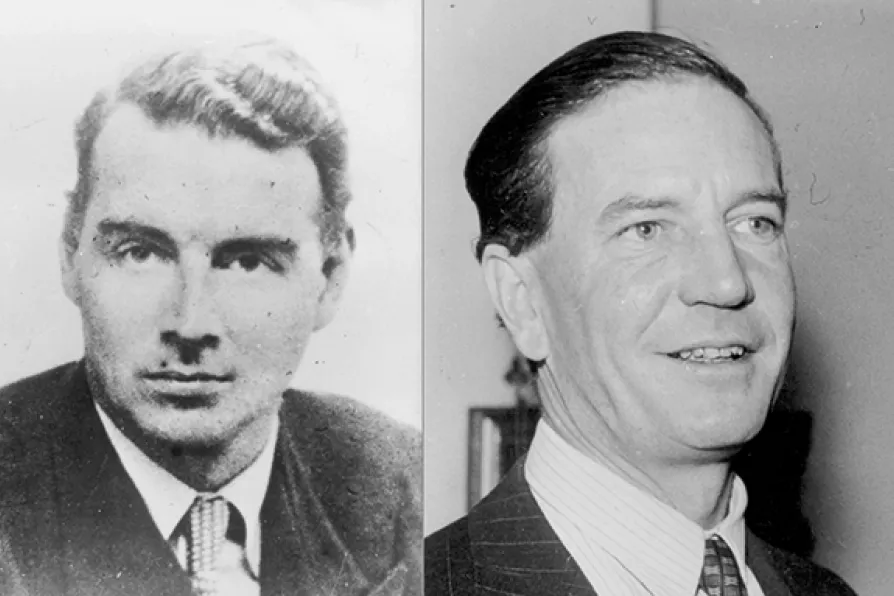Channel 4’s Dirty Business shows why private companies cannot be trusted with vital services like water, says PAUL DONOVAN

 TRUE SPIES: Real life double agents (from left to right) Anthony Blunt, Guy Burgess and Kim Philby
TRUE SPIES: Real life double agents (from left to right) Anthony Blunt, Guy Burgess and Kim Philby
EVERY spy novel turns on the question of betrayal and in the work of John le Carre this is at the heart of every story. His brilliant evocation of the Cold War with its rivalries and tensions reflected in the endless struggle for strategic advantage gave rise to a highly convincing cast of characters.
Le Carre acknowledged the provenance in real life of many of the characteristics he assigned to his protagonists. His unscrupulous con man father appears in A Perfect Spy; the bizarre collection of upper-class state functionaries and arriviste bureaucrats who staff the upper reaches of the Circus are the product of his literary skill and scrupulous characterisation but for anyone with a passing connection with the Civil Service, the intelligence world or Britain’s military caste they possess an authenticity that is more than the product of imagination.
Herein lies the secret of le Carre’s success as an author. For the generations shaped by the Cold War he renders the opaque operations of a secret world — hitherto impenetrable to the ordinary citizen — understandable in human terms and gives us fully three-dimensional characters with faults and foibles. He divides them into the categories innocent and knowing with a generosity that is even-handed except in relation to what we might categorise as the authentic British left and the working class.

PETER MASON applauds a stage version of Le Carre’s novel that questions what ordinary people have to gain from high-level governmental spying

Speaking to a CND meeting in Cambridge this week, SIMON BRIGNELL traced how the alliance’s anti-communist machinery broke unions, diverted vital funds from public services, and turned workers into cannon fodder for profit

JOHN ELLISON recalls the momentous role of the French resistance during WWII











